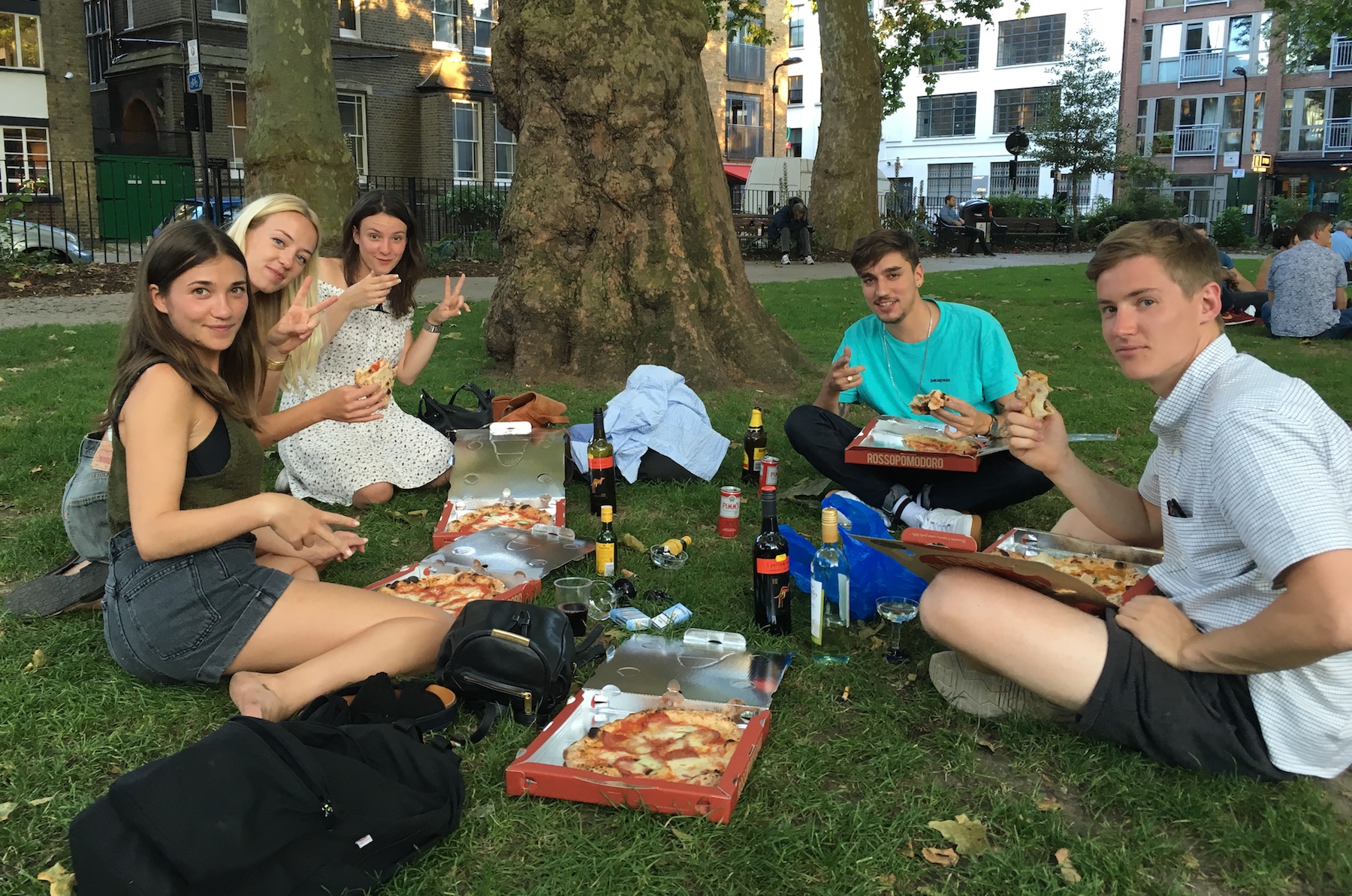Judging by the clothes I have on in the memory (jeans with legs as wide as salt shovels and an adult-large System Of A Down hoodie), I must have been about 12 when I watched three boys I'd never seen before kick the shit into my friends.
I say "System Of A Down" hoodie, but it could have been any earnest metal band Kerrang! had on rotation in 2002. I say "three boys", but there could have been anywhere between two to 20 of them. I say "never seen before", but they had approached us in the park a few minutes prior and called us greebos or something equally devastating. We shuffled away, they followed, and beat up all the boys while a female friend and I stood on the perimeters, pointlessly waving our arms about in a confused panic. I wouldn’t call it a fight, per se (that would have required some fighting back), but it was the first time I saw violence break out that way right in front of me, and I thought, 'Well, this is shit.'
The same park would become the scene of many other formative experiences. After a brief Year 8 romance, my first break-up took place underneath the huge chestnut tree near a statue honouring the two heroes who composed the Welsh national anthem (in a pub across the road, no less). The football stands became the centrepiece of my first summers of underage binge drinking. I feigned enthusiasm through a pleasureless fingering on a bench in the flower garden. A bunch of us got driven home by the police for hiding in a bush, waiting until the park closed, and creeping out to sit in the paddling pool doing poppers. All of which is to say: growing up somewhere remote literally turns your childhood into a series of Ed Sheeran songs – but also, that parks play a central role in British adolescence and beyond.

If you grew up in Britain, "the park" probably means something to you. Is there a phrase containing more layers of emotion than "The Park"? Can any other combination of words elicit a greater or more diverse bubbling-up of feeling? No. The Park is unique. It is both one specific place at one specific time, and a collection of places you will experience over the course of your entire life. It is as much a geographic location as it is a state of mind. The Park is the realm of eternal summer – always sunny, always searching for filters, always bolting onto your feet, shrieking, making everyone else scream as well, and then saying "sorry, wasp". It is a lush, green slate onto which we project all our fuck-its and fuck-ups. It is where you go when everyone collectively agrees to drop all responsibility and put in a day shift's worth of nothing but aggressive pleasure-seeking.
The Park can be a place of solemnity and reflection, sure. Somewhere to walk alone and notice a leaf and think about death, like a character in a Jonathan Safran Foer novel. But mostly it is a place to drink precisely five-and-a-half very flat, very warm cans of cider and then piss yourself or be sick. This is The Park I wish to discuss here.
The concept of The British Park rests entirely on two unwavering premises: that you can do whatever you want (within reason), and that nobody will stop you from doing it. It is essentially the middle ground between a music festival and actual childhood. Nobody really cares about how loud your music is, nobody really cares if you’re only wearing pants, nobody really cares if you’re drinking straight vodka and are clearly a teen, nobody really cares if you’re doing poi (I mean, they do, but they politely agree not to say anything). At most, the park police might arrive on bicycles and shout over the tinny sounds of Fall Out Boy farting through someone’s phone speakers and ask you to stop setting fire to McDonald's toys. Or, if you're past that sort of thing, tell you to put your nipples away.
Whatever age you are, The Park is always the most democratic option. No average human lives within convenient reach of a park. There is no "come to mine and we'll mosey over together". There is no half-arsing it. There is only everyone trekking from their respective postcodes with a carrier bag of shite hanging off every possible limb to sit in a big circle and shout at each other in shorts. It is everyone putting aside the usual ebb and flow of their respective days to plonk themselves cross-legged on the filthy earth. It's like a UN summit of fun. Especially outside of cities, where there is literally nowhere else to go except the corner shop, and only so many people can stand outside one of them at any given time.

Just as relationships begin and end, as people come and go, one park will enter your life to be replaced by another. There are and always will be First Parks, era-defining Long-Term Parks, and many Casual Parks in between. All containing different memories, but all playing the same foundational role. The Park is like IKEA or the buffet at Pizza Hut, offering you the core ingredients to create basically anything you want. And the British public have perused what is on offer and have unanimously decided upon: getting shitfaced and kicking off.
At some point you may find yourself back at your First Park. Perhaps you’re 18 and sitting on the swings with a friend, both on the precipice of leaving your hometown for the first time, life yawning cavernously open in front of you while you hoof the last of some bad coke off a National Insurance card and reflect on all the times you kissed the same people over by the cricket pitch. Perhaps you’re 37 and complaining about your own dumbass kids who are off somewhere else in the park eating dog poo (IDK what adulthood involves, I’m guessing one mortgage and various kinds of poo). Either way, a great realisation will occur. You have not truly contemplated your place in the world until you have revisited The Park you used to smoke weed in as a teenager and realised that it is actually way smaller and more run down than you remember, and all those older kids you hung out with were definitely huge creeps, and actually didn’t your friend once blackout from drinking, knock a tooth out and have to get their stomach pumped? That wasn’t great. Also: the fights. They weren’t very nice either. And the fingering... Was. So. Dry???
That said, the good tends to outshine all the bad here, like stars to dark matter. For every punch thrown, a Big WKD was passed around a group of friends like a ceremonial cup; for every crap snog, a nickname was forged and never forgotten. And they tend to get better, The Parks, as you get older. Less awkwardly figuring out how to be a person for the first time and getting picked on because of your jeans, more selecting the right brand of crisps and making sure you’re sitting within seven minutes walking distance of a public toilet. Less fights and fingering, more roaring laughter you will forget the source of by the end of the day because you’re older, now, and your brain retains information like a paper bag retains piss.
Sure, we could consider The Park for what it is: the place you went to get dehydration headaches during the four days of summer in which it was actually sunny. But to do that is to miss the point entirely. You will truly never appreciate The Park unless you have sat in the same place for a duration so great that time ceases to exist and your shoulders begin to fizz with sunburn like a Berocca. Nothing matters now, only cans. Cans, toilet proximity, crisps and the total pursuit of happiness for the rest of the day, safe in the knowledge there will always be a bit of your heart devoted to it. Parklife.
This article originally appeared on VICE UK.

























































